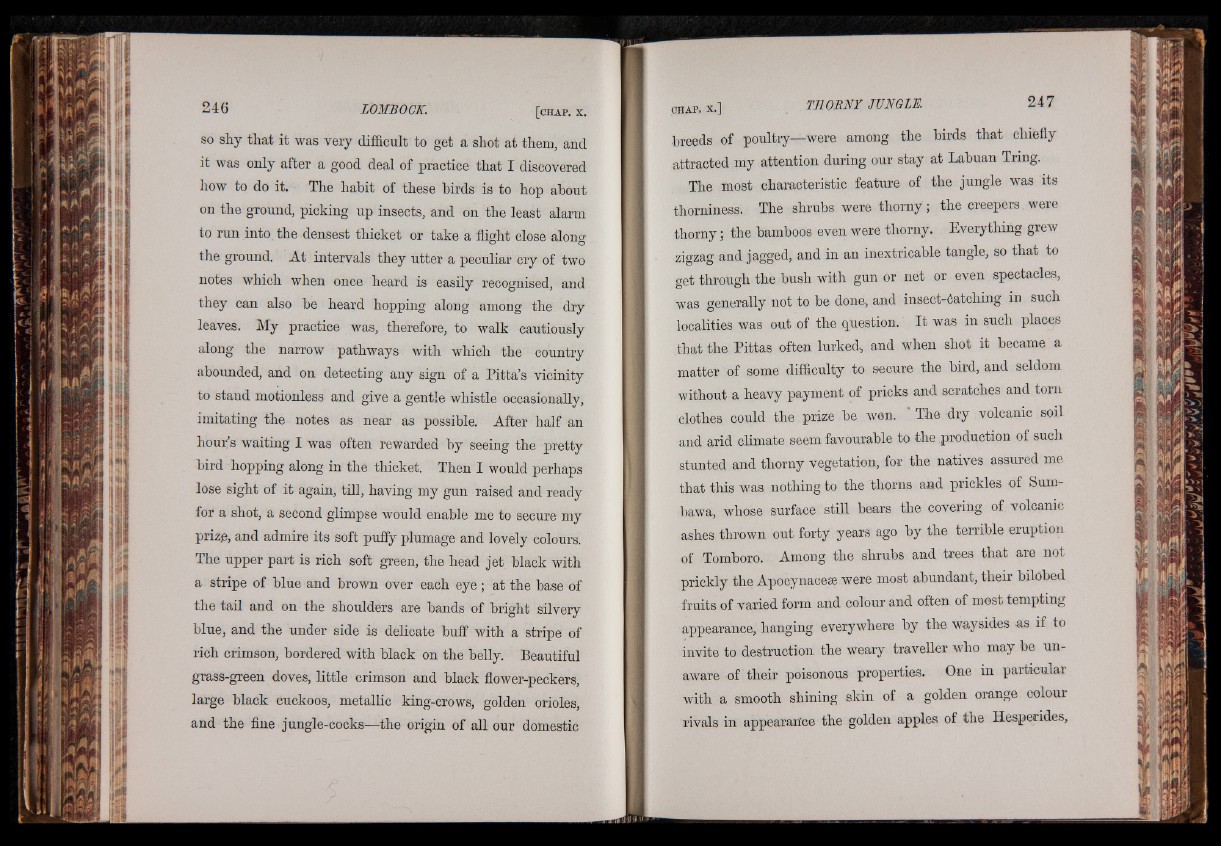
so shy that it was very difficult to get a shot at them, and
it was only after a good deal of practice that I discovered
how to do it. The habit of these birds is to hop about
on the ground, picking up insects, and on the least alarm
to run into the densest thicket or take a fliog ht close alon»o
the ground. At intervals they utter a peculiar cry of two
notes which when once heard is easily recognised, and
they can also he heard hopping along among the dry
leaves. My practice was, therefore, to walk cautiously
along the narrow pathways with which the country
abounded, and on detecting any sign of a Pitta’s vicinity
to stand motionless and give a gentle whistle occasionally,
imitating the notes as near as possible. After half an
hour’s waiting I was often rewarded by seeing the pretty
bird hopping along in the thicket. Then I would perhaps
lose sight of it again, till, having my gun raised and ready
for a shot, a second glimpse would enable me to secure my
prize, and admire its soft puffy plumage and lovely colours.
The upper part is rich soft green, the head jet black with
a- stripe of blue and brown over each eye ; at the base of
the tail and on the shoulders are bands of bright silvery
blue, and the under side is delicate buff with a stripe of
rich crimson, bordered with black on the belly. Beautiful
grass-green doves, little crimson and black flower-peckers,
large black cuckoos, metallic king-crows, golden orioles,
and the fine jungle-cocks—the origin of all our domestic
breeds of poultry—were among the birds that chiefly
attracted my attention during our stay at Labuan Tring.
The most characteristic feature of the jungle was its
thorniness. The shrubs were thorny; the creepers were
thorny; the bamboos even were thorny. Everything grew
zigzag and jagged, and in an inextricable tangle, so that to
get through the bush with gun or net or even spectacles,
was generally not to be done, and insect-6atching in such
localities was out of the question. It was in such places
that the Pittas often lurked, and when shot it became a
matter of some difficulty to secure the bird, and seldom
without a heavy payment of pricks and scratches and torn
clothes could the prize be won. ‘ The dry volcanic soil
and arid climate seem favourable to the production of such
stunted and thorny vegetation, for the natives assured me
that this was nothing to the thorns and prickles of Sum-
bawa, whose surface still bears the covering of volcanic
ashes thrown out forty years ago by the terrible eruption
of Tomboro. Among the shrubs and trees that are not
prickly the Apocynaceae were most abundant, their bilobed
fruits of varied form and colour and often of most tempting
appearance, hanging everywhere by the waysides as if to
invite to destruction the weary traveller who may be unaware
of their poisonous properties. One in particular
with a smooth shining skin of a golden orange colour
rivals in appearan'ce the golden apples of the Hesperides,